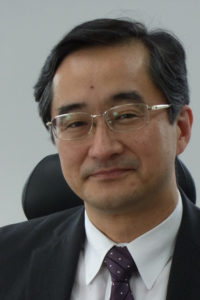Is U.S.-Japan Trade Friction Avoidable? Stay Resilient with Fair Arguments against Unfair Criticism ―Japan must not accept import obligations
< Key Points >
- Free trade and investment promotion should be addressed through economic dialogues
- Japan must accelerate structural reforms in agriculture, which is heavily protected by high tariffs
- Japan is compelled to accept the invitation to the Free Trade Agreement (FTA) negotiations with the United States

Kimura Fukunari, Professor, Keio University and Economic Research Institute for ASEAN and East Asia (ERIA)
It has been a little over one month since the inauguration of Donald Trump as the President of the United States. His political style remains unpredictable without a clear logical approach, leaving the entire world guessing with serious uncertainties.
The US government is faced with quite a few lingering risk factors, particularly with respect to its international trade policies. I am deeply concerned about the Trump administration’s attitude, which looks as though it is prepared to disregard the principles of non-discrimination or the international tariff agreements that have been embraced by the World Trade Organization (WTO) over the past seventy years following the Second World War, not to mention the departure from the Trans-Pacific Partnership (TPP).
Deputy Prime Minister Aso Taro and US Vice President Mike Pence are scheduled to hold bilateral economic talks. This was decided by Prime Minister Abe and President Trump in February during their first official summit. It represents significant progress in the bilateral relations because the senior cabinet leaders of the two countries are now set to negotiate without distractions from the new president’s tweets. However, it seems quite difficult now for the Japanese government to know for sure how the bilateral economic talks will develop in the coming years.
Meanwhile, it is clear what position Japan should take in the dialogues with respect to international trade policies. It must propose consistent steps aimed at achieving an international framework for the effective utilization of the global value chain (GVC), seeking to simultaneously promote free trade and active business investments.
You would find yourself playing into the hands of your opponent if you simply maintained a reactive stance to unreasonable requests on a haphazard basis without having an active strategy. If you maintain your position as much as possible with a fair argument, you would probably be able to reach a settlement before you became seriously injured, even in the worst case scenario. In order to maintain fair arguments in the trade negotiations, Japan should voluntarily remove its unfair protectionist trade practices, including tariff barriers on imports.
President Trump’s protectionist views represent nothing but a terrible anachronism. It seems that his views on international trade are based on what is referred to as “the first unbundling” by Professor Richard Baldwin of the Graduate Institute of International Studies, Geneva. According to Professor Baldwin, the first unbundling or the trend for geographic clustering of production and people caused by the old paradigm globalization had existed until the 1980s primarily in the context of the international division of labor for individual industries and inter-industry trades. Or his views perhaps better represent the nature of the period prior to the 1960s, when high import duties were common even among the industrialized nations.
We live in the age of the second unbundling, in which a new paradigm of globalization is underway with respect to production processes and tasks. With corporate business activities becoming increasingly globalized in parallel with the revolutionary progress in information technologies, a range of business elements including ideas, knowhow, investment, human resource development, not to mention physical things, cycle freely across the borders. In global business, people take for granted no tariff barriers. Furthermore, such cross-border transactions will require further deregulations on trade and investment with accommodating international rules in place.
Today the US economy happens to remain strong with the unemployment rate down to the range of 4 percent since last spring. Given this situation, the US government has been trying to implement a smooth transition in the industry in response to the growing technological innovations and the changing conditions in global competition, while trying to develop human resources that are capable of accommodating new business requirements as well as new competitive services that would create employment opportunities in society.
It was a huge mistake for President Trump to pressure an individual company to cancel the construction of its new plant in Mexico in an attempt to keep jobs from flowing out of the country. This kind of policy will undoubtedly remove competitiveness from companies operating in the global market. This will also leave consumers having to pay more for products and delay efforts to make changes in industrial structures, leading eventually to a slowed pace of growth for the global as well as American economy. What is worse, it currently looks difficult to make the administration realize that its protectionist policy is wrong because it takes time for the negative outcomes of such policies to become apparent.
What is the Trump administration likely to demand of Japan in the forthcoming bilateral economic talks?
First, it seems likely that the Trump administration will try to remove the growing trade deficits, which it claims to have been largely attributable to currency manipulations by trading partners. It is totally unfair that Japan has been accused in the same way as other countries that have a huge trade surplus with the United States. In fact, Japan has not intervened in the foreign exchange market for years. It is true that the central bank of Japan promoted the cooperative monetary easing policy as part of its concerted efforts as agreed upon with other central banks around the world. Consequently, the value of the Japanese yen against the US dollar has depreciated since 2013, but the volume of Japanese exports of goods did not show any noticeable growth.
During the US-Japan Structural Impediments Initiative (SII) talks around 1990, both governments came to agree that the Japan-US trade balance should not be addressed strictly as a bilateral problem but from a macro perspective in the context of trade and the current account surplus with trading partners around the world. In this sense, it is extremely important for the US government to keep currency matters out of its international trade policies.
Second, it looks like President Trump wants more American cars to be in Japan, as many Japanese cars are being sold in the American market. If they want to boost car sales in Japan, they must make more attractive cars and reach out to Japanese consumers with serious efforts to publicize the attractiveness of American automobiles. The general perception shared by Japanese consumers regarding American cars is not necessarily favorable. But there seems to be a chance of success for sports cars or off-road vehicles, which are still not common among the general public.
German automakers have had certain success in penetrating the Japanese market with a distinctive marketing approach to differentiate their products from those of their competitors. It will be more important than anything else for the American car makers to intensify their marketing efforts in Japan. It might be worth giving them some marketing help. The American auto industry tends to raise baseless criticisms against their competitors exporting cars to the United States. When Japan had a semiconductor trade dispute with the United States, Japan was compelled to accept an obligation to import a certain volume of semiconductors from the United States. Nothing like that should happen again.
Third, Japan’s agricultural policy poses a fundamental problem. Border measures, including tariffs, are intended to protect agricultural business in Japan, and they should have been replaced with subsidy programs during the Uruguay Round multilateral trade negotiations.
In the TPP negotiations, Japan pledged to remove tariffs on 95% of products, which was much higher than the comparable elimination percentage pledged in WTO and other FTA negotiations. But this number looks significantly lower than that pledged by other TPP nations; i.e. more than 99% for eleven other nations.
Japan should absolutely not be allowed to maintain anachronistic trade barriers while benefiting from the global value chains as well as free trade and investments practiced by other countries. It is time for Japan to implement drastic reforms to its current policies protecting the agricultural business by taking advantage of the campaign gathering momentum toward agricultural reforms in Japan.
It seems quite likely that high-level economic dialogues between Japan and the United States will develop into FTA negotiations. While pursuing a mega free trade agreement like the TPP as a second option without US participation, Japan will be compelled to accept the invitation to the FTA negotiations with the United States.
Some experts are concerned that the bilateral economic negotiations will produce disadvantageous outcomes for Japan, given the bitter lessons learned from the experience with the strategic impediment initiatives almost three decades ago. However, Japan is currently in a far more advantageous position in terms of negotiation, because it has succeeded in addressing a number of issues during bilateral talks over many years, including the liberalization and deregulation of the service sector and the distribution sector.
Meanwhile, Japan’s foreign direct investment has expanded in the United States, accounting for one third of the total direct investments made abroad (refer to figure). Consequently, many more jobs have been created there. In view of these achievements with the liberalization/deregulation efforts, requests from the US government must be quite limited in nature without regard to unfair ones.
The US and Japanese governments seem to have succeeded in removing almost all trade barriers between the two countries, except for those that still remain in a few business sectors. In this sense, the economic benefits of eliminating trade barriers such as tariffs are expected to be quite limited. On the other hand, the significance of having FTA talks with the United States should be realized by sending out the message to the world regarding the importance of promoting free trade and investment, as well as by suggesting a basic framework of international rules.
Today, the idea of free trade and investment can only be promoted aggressively in East Asia, including those countries located in the North East and South Eastern regions in Asia. Japan has been taking a leadership position in promoting economic growth in emerging and developing nations while keeping jobs from flowing out of industrialized nations by leveraging the aggressive use of GVC. In the forthcoming bilateral economic talks with the Trump administration, Japan should not hesitate to emphasize the advantageous aspects of globalization.
Japan is currently engaged in a couple of important trade and economic talks related to the Economic Partnership Agreement (EPA) with the European Union (EU) and Regional Comprehensive Economic Partnership (RCEP) with East Asian nations. With successful achievements in such ongoing negotiations, Japan might be able to put the Trump administration’s trade policies into perspective.
Translated by The Japan Journal, Ltd. The article first appeared in the “Keizai kyoshitsu” column of The Nikkei newspaper on 6 March 2017 under the title, “Nichibei boekimasatsu kaihi dekiruka (1): Yokyu ni okusezu seiron wo tsuranuke (Is U.S.-Japan Trade Friction Avoidable? (1): Stay Resilient with Fair Arguments against Unfair Criticism).” The Nikkei, 6 March 2017, p. 15. (Courtesy of the author)





